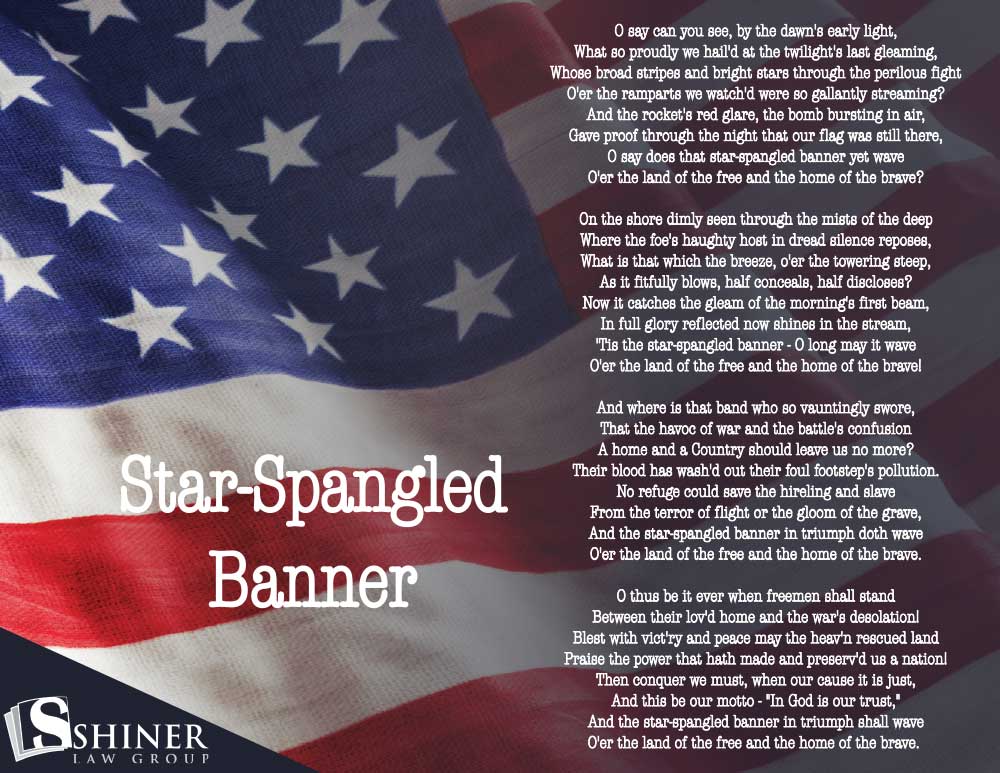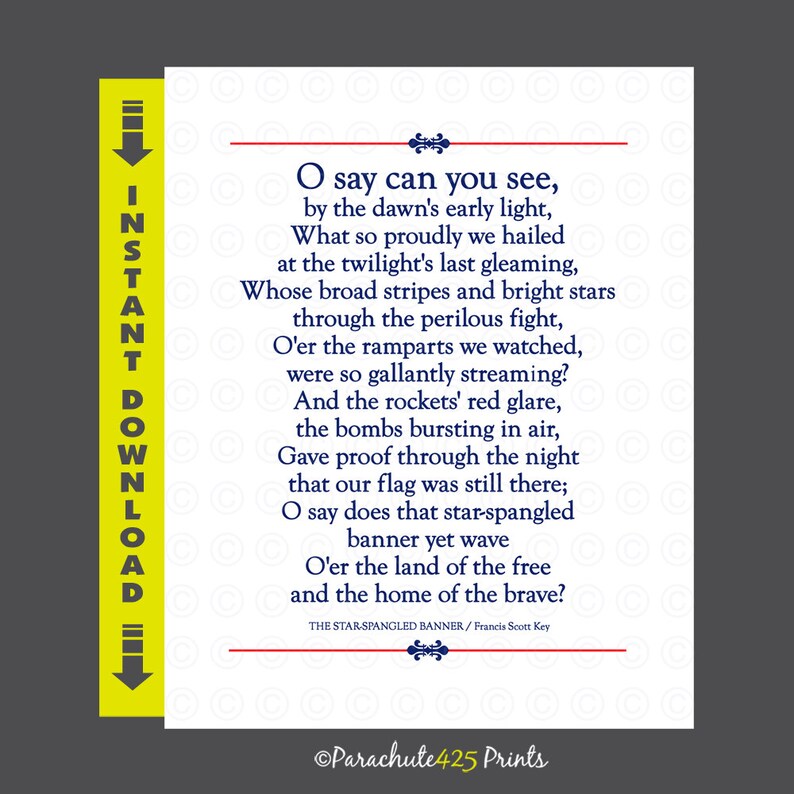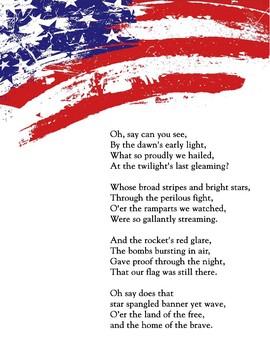

Kindly put, Key was a nation-builder who lost luster later in life. His poem told the story, sparking unity and spirit for post-Revolutionary generations. The War of 1812 came to his city port of Baltimore and the new nation won the day. His elegant life started out well and was winning at halftime, like the dashing Confederacy itself. Key illustrates how the antebellum South lost that game. Taney swore in Abraham Lincoln as president in 1861, a face-to-face breaking point between the nation’s past and future. Historians consider it a catalyst for the Civil War, which broke out four years later. The Dred Scott ruling landed as a public outrage.
Words of the star spangled banner song free#
Taney struck down the argument that free blacks could become citizens in free states like Illinois and further declared that all blacks, whether slave or free, were never entitled to any rights, period. Roundly hated north of the Mason-Dixon line, Taney lived long enough to author the 1857 Dred Scott Supreme Court opinion, the most starkly racist high court decision in history. That’s how small the antebellum South was for wealthy white men. Taney and Key were friends before Roger met and married Key’s sister. Like Key, Taney was a native of Maryland, a state steeped in slavery, where Frederick Douglass was born.

To be tied to the infamous Taney is a serious stain on Key’s rosy reputation.

Then came the worst cut of all: Key prevailed on Jackson to name Key’s own brother-in-law, Roger Taney, to the Cabinet and then to the ultimate prize: chief justice of the United States. Jackson had no sympathy for mobs, but even less for slaves and free blacks. Jackson’s presidency brought brutal, racially motivated mob violence like never before, including a race riot in Washington, D.C. When he wasn’t shouting, Jackson listened.

Key often whispered in the ear of Jackson, the plantation owner in the White House. He also aggressively prosecuted early abolitionists, who had founded the anti-slavery movement in 1833. district attorney for the nation’s capital, where he prosecuted race and slavery laws to the fullest extent, even to the death penalty. In his 50s, Key became an adviser to President Andrew Jackson, who was also a wealthy self-made Southern slaveholder.Īt the same time, Key was named by Jackson as the U.S. So beside the anthem, his political legacy as a critical political player in upholding slavery is devastating. Supreme Court, which he helped shape, stood strongly for slavery. He liked it that way.Īs he grew older and darker, Key sought to buttress slavery, known as our own “peculiar institution.” He did just that, past his last breath. Lawyer-poet Key, born to massive slaveholding wealth in Maryland, was one of the richest men in America. Whatever side you’re on, we all need to know the roots of “The Star-Spangled Banner” run deep in slavery’s soil. But the backstory and crosscurrents of the anthem are as unresolved as the NFL player challenges still likely to come on game days. It might seem like Key is up past his historical bedtime. His actions, joined by other players, drew President Donald Trump’s fury and divided public opinion. How deep is seldom told.įor the record, Kaepernick’s peaceful protest was aimed at police brutality toward black men. Whatever side you’re on, we all need to know the roots of “The Star-Spangled Banner” anthem run deep in slavery’s soil.


 0 kommentar(er)
0 kommentar(er)
